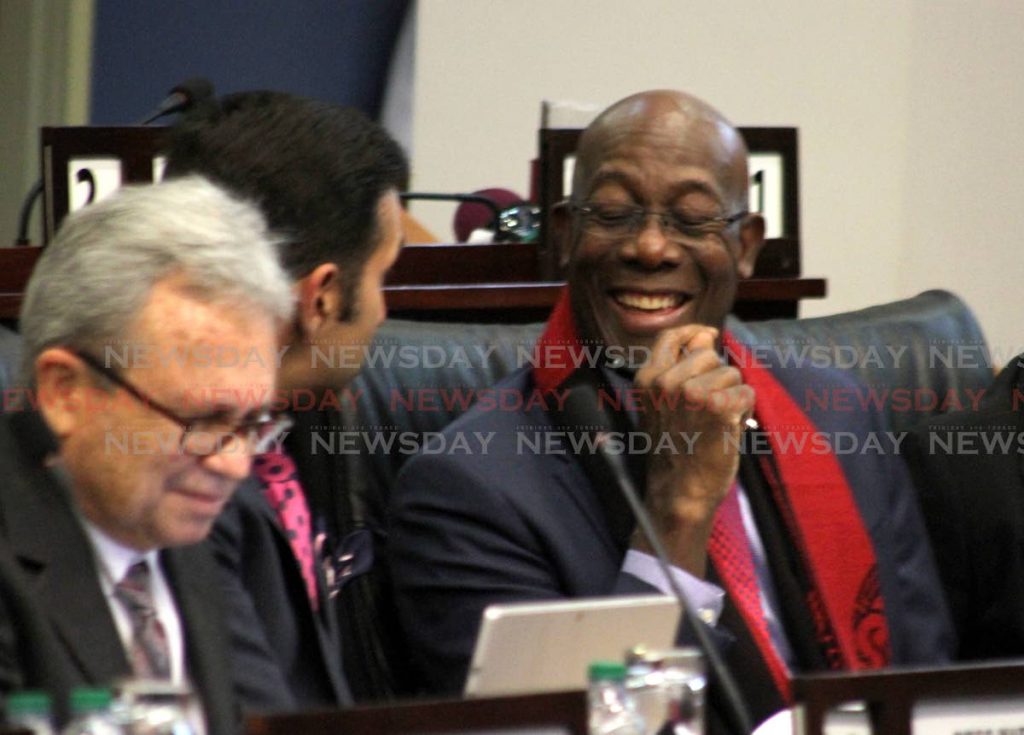KPMG: Budget offers hope

THE 2018/2019 budget presented by Finance Minister Colm Imbert in the House of Representatives last Monday is intended to “offer some hope for businesses and citizens of TT, by providing a candid insight into the country’s current economic situation.
This was the view expressed by KPMG managing partner Dushyant Sookram in the firm’s 2019 budget commentary. With global growth slated to reach 3.8 per cent in 2018 and 3.9 per cent in 2019, oil prices are steadily climbing and are estimated by international institutions to remain at an average of US$68 per barrel during this period.
Sookram said Imbert indicated this global growth resulted in TT experiencing a return to positive growth and development, as evidence by a 2.2 per cent growth rate in the energy sector this year.
He said KPMG noted the remarkable growth of 7.3 per cent in the manufacturing sector, which contributed to an increase of $2.3 billion in non-oil revenues in 2018 over fiscal 2017. Sookram also noted the “game changers” mentioned by Imbert in his presentation. He said this demonstrated “Government’s vision of transforming culture, values and attitudes.”
Sookram said Government continues to be faced with the challenging task of managing the country’s revenue and expenditure with recurrent budget deficits. A $47.7 billion revenue target us budgeted for 2019.
He said this represents an increase of 12 per cent from 2018’s realised revenue of $42.6 billion. “Notably, the 2019 revenue projections are based on substantial non-oil revenues of $35.197 billion, which show the Government’s focus and commitment on stimulating non-oil industries,” Sookram said. He observed the expenditure for 2019 is budgeted at $51.7 billion. This, Sookram continued, represents an increase of approximately six per cent when compared to fiscal 2018’s expenditure of $48.8 billion.
The fiscal deficit for 2019 is expected at 2.5 per cent of GDP or $4.052 billion, when compared to the deficit of $6.262 billion or 3.9 per cent of GDP in fiscal 2018.
Regarding Imbert’s statements about careful management of the exchange rate and other strategies containing inflation at one per cent, Sookram said, “This is worth mention in the face that the Caribbean average is 4.5 per cent.”
While citizens will bear a $1 per litre increase in super gasoline (from $3.97 to $4.97 per litre), Sookram said many compensatory measures were noted.
He indicated that Imbert re-directed this “$700 million in saving on the fuel subsidy into improve social welfare and other support payments.”
Referring to increases in disability grants, food cards and public assistance grants, Sookram said all of these measures are commendable. “The Government focused on improving the welfare of the country’s vulnerable and working class which should not go unnoticed,” he said.
Sookram said it was instructive that tax allowances for tertiary education expenses at overseas institutions is an allowance which has not been increased since 2007. Imbert said that allowance was increased from $60,000 to $72,000 per year.
Sookram said Government continued its focus on tax compliance and enhancing revenue collections in the budget. While the TT Revenue Authority (TTRA) was mentioned, Sookram said, “Many continue to eagerly await the TTRA’s introduction in anticipation of the improved efficiency and synchronisation promised by the Government.”
Sookram said many businesses and citizens were relieved by Imbert’s announcement that property tax will not be retroactive and due only from 2019 and onwards.
He observed Imbert made no statement in his presentation about the assessment and/or valuation of commercial and/or industrial property. Sookram said this remains a major issue as far as property tax is concerned. “Several increases to tax penalties were noted and seem to be aimed at encouraging tax compliance,” he said.
On Petrotrin, Sookram noted Imbert’s statement that the decision to “reform” Petrotrin required a quantum shift in operational focus.
That focus, Sookram continued, was outlined by Imbert to include importation of petroleum-based products for the domestic and Caricom markets as well as exploration and production activities.
While Imbert indicated Petrotrin workers will be appropriately compensated and early estimates for the termination packages amounted to $2.6 billion, Sookram said, “There were no indications of how this would be funded.”


Comments
"KPMG: Budget offers hope"